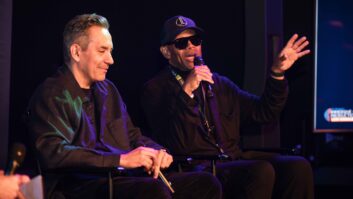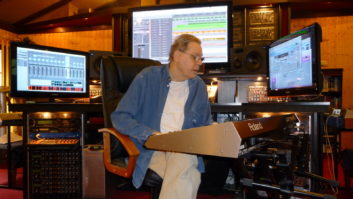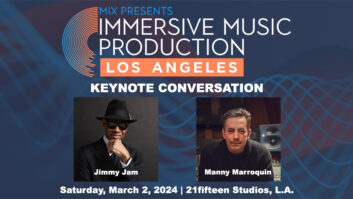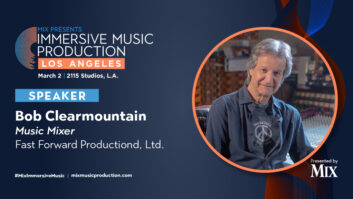Robert Forster co-founded the Go-Betweens in Brisbane, Australia, back in 1977. Teaming up with songwriting partner and bandmate Grant McLennan, the duo forged ahead for the better part of three decades, creating an impressive body of work and being dubbed the “Lennon-McCartney of indie” because of the sheer brilliance of their words and music. Alas, the band’s career was cut short by McLennan’s untimely death in 2006, but Robert Forster continues to create stellar material as a solo artist. His latest work, Inferno, is no exception. Pro Sound News had a cross-continental conversation with Forster from his home in balmy Australia.
On writing new material
As a songwriter, I write songs over time. It’s not like I’m the type of writer who goes, “Oh, I’ve got an album coming out and I’m going to write 15 songs in the next two months.” I hear people say that all the time and it astonishes me because I couldn’t do it. And also, why leave writing songs for an album to the last two months? I don’t understand that either. I am trying to write songs all the time, and I only write about one, two or three that I like every year. So it takes me years to create material for a record, and to try to put a mood into that is quite hard. I think the mood itself comes more from the studio, more from who I’m working with and the circumstances of what is happening in the studio.
On minimalist production
The minimalist approach is just an aesthetic I love. It’s like 1950s rock ’n’ roll, like The Beatles of Hamburg or The Beatles of “Love Me Do.” And it goes through The Velvets and a lot of other stuff. I don’t like layers and layers of candy floss, orchestras coming in, 15 guitars and eight keyboard parts—that’s just not me. I do like instrumentation, but it’s really got to serve a purpose. I like a band like The Doors, where I can just hear the four of them in a room, right until the end. If things are really well recorded and you can hear the magic of three, four or five instruments, that has always appealed to me. If you’ve got drums, bass, piano, guitars and vocals really well recorded, it is going to work. The base of this album is a band playing in a room, and there is this nice combination of material that was beautifully recorded—but it is not this sort of slick, mechanical thing where you’ve been in the studio for four months and it’s been Pro Tooled to death.
Related: Music Etc. Stories on Pro Sound News
On sequencing
This was probably one of the hardest records for me to sequence. “Crazy Jane on the Day of Judgement” was pretty much always going to be the first track because I wanted the record to come in on a two-chord groove. I wanted to alert people that this was the mood, and it just sort of came in. Sometimes you choose to come in with something sort of eerie, or big and powerful. “Crazy Jane” had this hypnotic, beautiful two-chord thing that just eased in after a while. For the last song, there were many possibilities. It was really only toward the end that I decided on “One Bird in the Sky,” which starts with this lone acoustic guitar that comes in to let people know that it is the last song. Sequencing a record properly—especially if you are doing nine songs—is really important. I never want to do a record over 40 minutes, but now people are doing 15- and 18-song albums. I couldn’t imagine sequencing something that long and holding someone’s attention over 15 songs. When you’ve only got nine or ten songs, everything is vital.

On recording “Cattle and Cane”
Recording “Cattle and Cane” back in 1982 was probably the first time we worked with a really good producer in the studio who really just took the band from one place, and we ended up in another. Grant [McLennan] played that tune for me on acoustic guitar—he had written the whole song. He was playing it over and over again and we were talking about it, working up bits and pieces. He didn’t even have a lyric; he only had a riff. Then Lindy [Morrison] comes in playing drums and we work out something in the practice room. Then it went into the studio, where it makes this massive leap and you just suddenly go, “Wow, that’s a classic record.” Somehow it is bigger than anything you could have imagined. That was the first time we had the experience that a song became a lot bigger and more magical than anything we had before we went into the studio.
https://www.youtube.com/watch?v=JOhLPbqGxPc
On unfinished business
I think there was unfinished business with the Go-Betweens. Grant and I and the band were working toward a great tenth album and I think we would have continued to make really good, vital music. On the other side of that, we made nine albums, which is a good amount of music. There is an album of early singles as well, so there’s really ten albums. I think that’s the body of work. You look at Joy Division—they made two albums—and say, that is definitely unfinished business. You look at Love, that’s unfinished business, too. And bands that make one great album and break up, you think, “Oh God, what could have been?” But that’s not our story. The circumstances in which the band stopped with Grant dying is absolutely horrible. But the fact that we made a good amount of music, I’m satisfied with that.
Want more stories like this? Subscribe to our newsletter and get it delivered right to your inbox.







